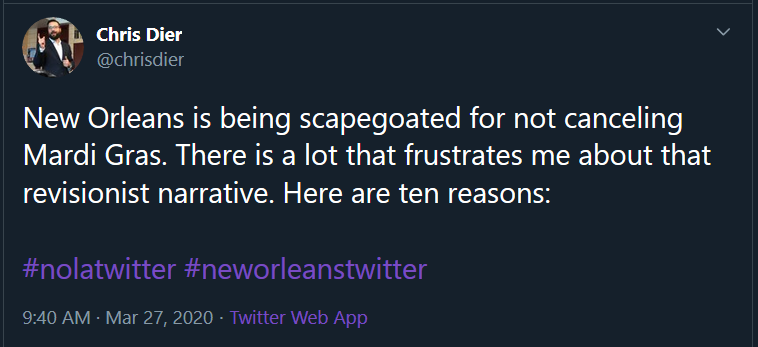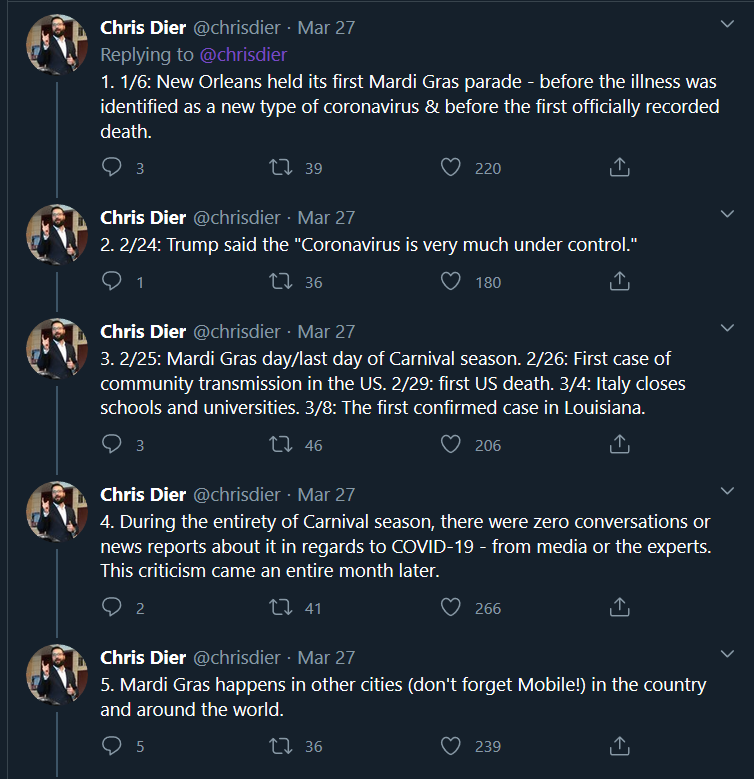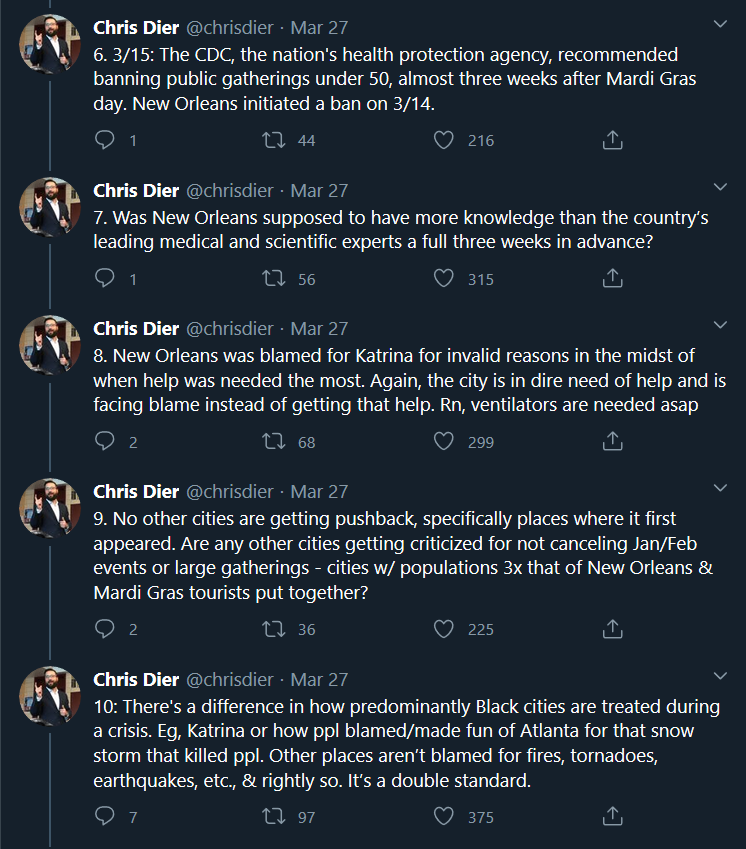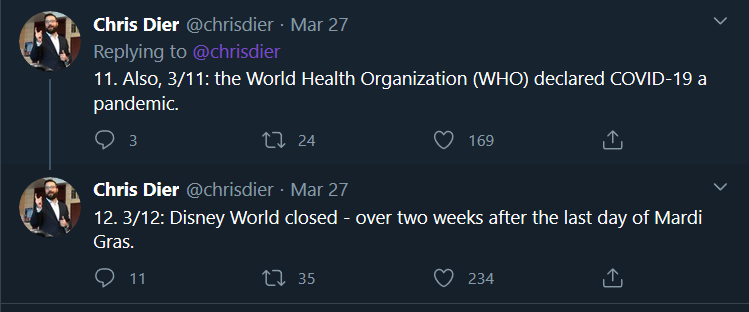Post-Covid 19 world
-
I think this might be a good discussion (if we keep it constructive
 ).
).How do you think - if you think - our societies will change as a result of Covid-19 once this crisis is over? Please let's assume a more or less predictable progression for it since there's no good way to speculate otherwise; a few more months of fighting to flatten the curve, then the combined efforts of medical professionals and social isolation finally stopping it with the occasional localized outbreak.
But assuming that's the case what happens next? How will things shape out? For example:
- Do you think western societies will adopt Universal Basic Income models?
- Do you think industries which attract large crowds (sports, entertainment, etc) will stay the same?
- Will traveling in general be affected? Not just in the political sense but for example how might tourism change after this?
- What about films, do you think there might be a shift away from major releases going exclusively to cinemas first?
- The service industry in general took a major hit. What happens down the line, do things get back to normal?
And so on. It could be a fun (or scary) thought exercise while we're all socially isolated anyway.

-
I see two major changes happening as a result of this pandemic and how people have been forced to react to it.
One is that businesses that can continue to run right now with their employees working from home will actually start adopting that model if they do not see too much of a drop in production from being forced to make that change. This would actually save the company money in the long run and helps the environment with less people driving.
The second is that workers that are part of the industries that have been forced to let people go like the service industry and others where they end up being easily replaced or removed will try to unionize more than they are now. At least that is something they should focus on for the benefit of their own future and financial security.
UBI is a hard pill to swallow because people in the USA are still spooked by the scary word, Socialism. Until the country stops being an oligarch, not much on that side will change. Hell, those with money were trying to find a way to get people to go back to work before the pandemic peaked because they were losing money, it took science and medical experts to smack them upside the head with facts before the smarter decision was made. Plus, one big reason I see why the government was so slow on making sure tests are available is because if you don't test, you don't need to report real numbers. That way, they can delay the stock market crash as much as possible.
Society will eventually get back to normal once the vaccine comes out but question is, how many people will be able to recover and how badly would they have suffered in the meantime.
-
I would like things to change.
But I actually do not think this is bad enough to force something like what had to be done post-Depression. People are not desperate enough.
Could it get that way, of course. We have been through worse in history and will be again, and we have yet to solve problems that would help avoid some of the huge disparities and just in general willingness to actually give a shit about other people on a meaningful scale.
I do think this will hasten dismantling of regular jobs for gig work, automation and outsourcing at a much faster rate than it would have happened otherwise. Maybe we will see a slight increase in people believing in vaccines again, and perhaps a willingness to look (feebly) at healthcare delivery in the US.
Despite many warm and fuzzy stories, when I look at how people are actually processing and responding to this in my community though I do not see improvement, only continued focus on what's in it for me/screw you.
I worry about the mental health collapse of our front line workers in 12-18 months. It is documented in other crisis situations and we will be facing it simultaneously worldwide. I do not think that most communities in the US will have the patience or will to sustain them, if we look at how our government supported and cared for a relatively small group of people (compared to this) who were the first responders on 9/11. Have we really gotten /less/ selfish as a society since then?
I want change, but I also have a very small idea of the cost, and if this shitshow (that we are lucky that the virus is not as bad as it could have been)is any indication of how much it sucked to live through a more deadly epidemic like the bubonic plague or Kansas Flu, then the revolution is going to suck hard for a hell of a lot more people than the rich. I think people gloss over the suffering that happens and how many people never see the results that they fight for, especially in the US where we whitewash and romanticize everything.
I hope this wakes people up, but I will be honest, what I am seeing doesn't give me hope.
Does not mean I will not keep contributing and fighting. But I just do not think this situation is going to be the tool for change in the direction that some of my optimistic friends seem to think that it is.
-
Okay. frustrated rant time.....you have been warned.
Nothing will change. At least, nothing in the United States will change. For maybe a few years, people will mimic behavior and pretend that a lesson from all this was learned. But then, just like every historical crisis the US has faced, it will all be forgotten and things will return back to the status quo. There will be no substantive changes in US politics, economics, or general behavior. Because we are the United States. We are the Chosen Ones. We are the Greatest Nation on Earth. We are, we are, we are....
And that is why we keep getting slapped around by stuff like this; that presumptuous arrogance that America Endures. That without America, humanity falls into chaos. That Our Way is the Only Way. The We are the Country of Destiny. And we don't think anyone or anything can touch us because we're so powerful. You can trace most of the great tragedies of the past century to either people or nature exploiting the blind spot that such general arrogance creates. Don't believe this? We're in the middle of a effing pandemic, and yet the two biggest parties in America, Mardi Gras and Spring Break, went on as planned. No quarantine, no Shelter In Place, no 'hey, maybe this isn't such a good idea, packing bodies together like that'.
Moreover, and this isn't a slam on all Christians or all Conservatives, people are outright ignoring the effing experts that spent almost a decade getting a degree in studying things like this, and have been watching and working against this kind of thing for multiple decades. 'It's a Deep State hoax'. 'God will save us'. 'It's not as bad as the actual flu'.
Time and again, we prove Isaac Asimov correct when he said: “Anti-intellectualism has been a constant thread winding its way through our political and cultural life, nurtured by the false notion that democracy means that 'my ignorance is just as good as your knowledge.'”
And more and more, Americans are putting not just the ignorant, but the proudly ignorant in charge. Because there's a considerable chunk of the US population that is proudly ignorant themselves.
Oh, people will talk once we get past the major infection and death curves. There will be movements towards 'change', but ultimately, it's all going to be in the past. 'It was a fluke'. 'It's never going to happen like that again'. 'It was a million to one happenstance and we'll be ready for it next time'.
And all the while, Fate will be keeping the pimp hand strong and ready to slap us again in a vain attempt to wake us up and realize the cold facts of reality.
-
@Runescryer said in Post-Covid 19 world:
We're in the middle of a effing pandemic, and yet the two biggest parties in America, Mardi Gras and Spring Break, went on as planned. No quarantine, no Shelter In Place, no 'hey, maybe this isn't such a good idea, packing bodies together like that'.
twitch




-
I want to think that we will learn something from all of this. I watch reports of how emission levels alone are cut in half in our cities here because no one is driving and I think, well, maybe finally, our society will evolve a bit. Maybe the climate disaster can in fact still be prevented. We can clearly affect change as a society when we're scared enough to get together and do something about it.
But I don't think it will. Because the people who actually need to be scared, the people making the decisions that really matter -- they're not the ones losing jobs and income and family right now. And for the rest of us, the need to get back to normal is strong. Once this quarantine et all is over -- most will rush out to do all the sports and events that they missed out on, and try to forget that it all ever happened.
And nothing will really change at all.
-
@Rinel Fair enough. I was mistaken in that I thought Mardi Gras was in March. Not February.
Rest of my point still stands.
-
@mietze said in Post-Covid 19 world:
But I actually do not think this is bad enough to force something like what had to be done post-Depression. People are not desperate enough.
They will be.
Few people are talking about the economic outlook after the pandemic is over, and for cause: no one really knows for sure because international economics look a lot different now than it did back when the Spanish flu, Asian flu, and Hong Kong flu hit.
I haven't crunched numbers yet, but I have the time to do it now, I suppose.
-
Unless the death toll racks up into the millions, I don't think much will change in the long term. Short term, certainly. We'll have a slower economy and almost for certain another recession. There is the potential that we may not be able to go about our lives for another two months, but even after that, what does the rest of the year look like?
I don't know, but I'm certain that it'll just be one group blaming another group and nobody willing to take accountability for themselves.
-
@Ganymede I am not so sure about that. We certainly are not there yet. A lot of things have changed, not just economics. And we have endure far worse devastation locally that did not involve wide scale riots, protests, and bloodshed (and I am pretty sure that is what is going to need to happen, or an actual credible threat of it, like in FDR's time. That stuff did not get passed out of benevolence.)
Do I hope that people look at things and look to future prevention? Yes. Am I hopeful, no. mostly because what people are experiencing now is fear and isolation. When people really are starting to be massively displaced, starving, cannot afford necessities like power, cell phone service, ect then I think maybe. But this has happened before in local areas and...things did not significantly change for the better and often got worse for the most vulnerable.
A lot of people are having all kinds of fantasies about this on all sides of the equation but it seems like a super shitty time that I hope that we actually do not see come to pass, if for no other reason than with very few exceptions everyone always seems to get to end result super bad wrong a few times.
-
On a positive side, I do think thing will bring about some good changes in medical sciences and technology. AI/Machine Learning (all you cybersecurity folks can take a drink) led medical research into drug efficacy may possible allow for a rapid response to similar diseases in the future. A vaccine is already in clinical trials months after the virus was detected. 3D printing is being utilized to quickly address design failures and shortages.
None of those are perfect right now, but if any prove successful they will see a ton of investment and further growth.
And hopefully hospitals will actually start to take their DR planning seriously.
-
Without jobs and housing guarantees UBI is just going to offer predatory capitalism further opportunities to exploit people.
I'd like to see a serious health system rework that includes M4A, but I have no expectation that we'll ever see this. The middle and lower classes have been trained to fight against their own interests.
-
@Ganymede said in Post-Covid 19 world:
Few people are talking about the economic outlook after the pandemic is over,
Shit, few people are talking about when the emergency measures will end. Part ignorance, part cowardice. There are still so many ways this can go. Worst case of ending measures early and not reimposing them, up to two million dead? Doing periods of controlled exposure to try and up herd immunity? Quarantine until a vaccine is ready in a year or two?
Hard to calculate effect when you don't even know the operative timeline.
-
I'm going to throw my hat into the bucket of 'nothing will change'. I'm on a lot of FB boards with teachers and we joke about how well we will be appreciated after this, but I see it going the other way also with parents more resentful because they had to work so hard but couldn't see what teachers were doing. (The teachers posting that they aren't allowed to work right now and thus have margaritas in hand aren't helping....)
-
I don't think too much will change based on what is happening now. The number of people who are out of work who view this time as a vacation rather than being very, very concerned is pretty sickening. Check back in a month when things get even worse.
Actually, even then I don't think things will change. I don't have much faith in people. Rich people will continue to get richer by exploiting poorer people. Poorer people will continue to let themselves be exploited and live on razor thin margins without a safety net.
-
I'm not going to talk on the society/political systems. I am curious about the movie industry though, specifically movie theaters. With movies going straight to streaming for $20 (approximately) a pop. It shows releases can come to the person's home. People now can purchase surround sound that is as good (or better) than theaters. They can order big screen tvs. They have their own snacks. --- My family and I were talking about this the other day. - What kind of (if any) impact you think this is going to hit in that industry?
-
@RightMeow said in Post-Covid 19 world:
I'm not going to talk on the society/political systems. I am curious about the movie industry though, specifically movie theaters. With movies going straight to streaming for $20 (approximately) a pop. It shows releases can come to the person's home. People now can purchase surround sound that is as good (or better) than theaters. They can order big screen tvs. They have their own snacks. --- My family and I were talking about this the other day. - What kind of (if any) impact you think this is going to hit in that industry?
Movie theaters are already on the way out, at least in my town. I don't think they'll survive this.
-
@RightMeow said in Post-Covid 19 world:
People now can purchase surround sound that is as good (or better) than theaters. They can order big screen tvs. They have their own snacks. --- My family and I were talking about this the other day. - What kind of (if any) impact you think this is going to hit in that industry?
Assuming production companies don't want to just sit on their finished big budget films indefinitely they will probably release it to home viewers.
This creates a cat out of the bag kind of scenario. People will get used to it and will expect it going forward, the effect of which is hard to predict. We might actually have seen cinemas' heyday, and they might become a bit of a curiosity for old diehards.
-
I think the theater industry will survive. Hotels survived the AirBnB craze.
Theaters are still an experience. Drive-ins are still around. People will pay for that experience. Around my city, many theaters have been renovated to have these big ass comfy seats, yet the ticket prices are about the same. In some places you can order beer and wine too.
Good industries adapt. Few actually go extinct.
-
Do you think western societies will adopt Universal Basic Income models?
Some may, but it will shock me if the United States jumps on that bandwagon. Everything about how our society functions from soup to nuts is about punishing the poor and getting the poor to agree that they deserve abuse. The compass alignment required for this to happen means a realignment of how employment, education, and health care functions in this country. It's possible to do this but I'm not sure it's probable given the buy-in required.
Major cities are getting the brunt of this but the majority of the population outside of these cities isn't going through the same experience. It's still abstract for these groups and most of this is, so far, just one big fucking inconvenience when it comes to businesses being open and life being able to roll on. There's no amount of escalating cases numbers in New York City that you can show a lot of these people to agree that it's their problem. Sure, it's a problem but that's all happening in New York, which is pointedly not Bible Thump, Mississippi to them. There's still a fair amount of denial that they're just weeks behind these places because magical thinking and prayers will exempt them.
Do you think industries which attract large crowds (sports, entertainment, etc) will stay the same?
Our capacity for forgetting is pretty impressive. Large crowds will prevail as the appetite for this kind of consumption will probably not abate. The average person at this point just wants to go back to normal and their sense of normal includes Las Vegas, arena tour sellouts, and EDM festivals.
Will traveling in general be affected? Not just in the political sense but for example how might tourism change after this?
There will probably more advisories about seasonal outbreaks of the virus and how people are allowed to enter and exit populations where exposure is likely but those restrictions will be per nation. However, unlike 9/11, we don't have a tangible enemy, so the idea of safety when traveling is a lot harder to traverse.
What about films, do you think there might be a shift away from major releases going exclusively to cinemas first?
I think that really depends on how well their market tests of in-home access really does. They're entering a particularly busy channel where being a blockbuster movie is not a standout because original programming on a number of paid app services are doing the same thing for content. Going to the movies is about the experience. They're going to have to find a way to market this experience that's different from just firing up Netflix and sitting on your couch.
The service industry in general took a major hit. What happens down the line, do things get back to normal?
Probably, yes? Certain kinds of services probably won't survive but new ones will rise in their place.